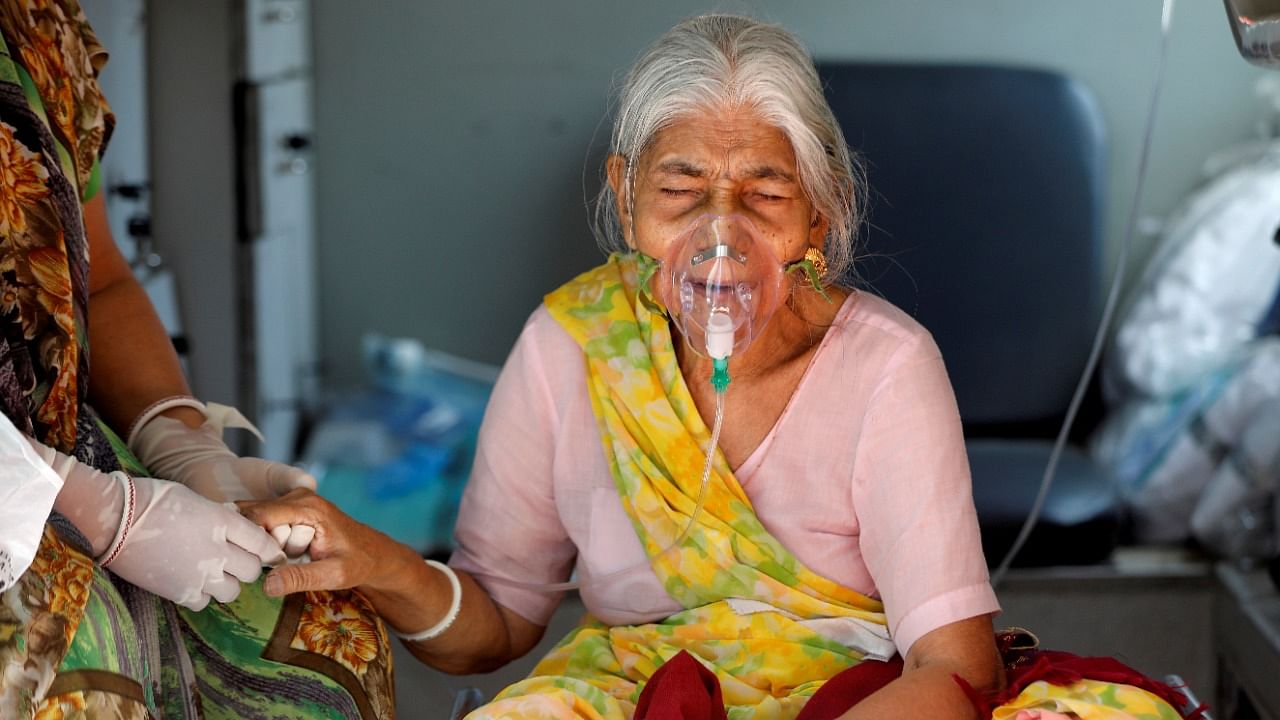
Absence of medical resources forced Covid-19 patients to fend for themselves and look for oxygen concentrator as an alternative to liquid medical oxygen (LMO) and even procure the device from overseas amid short supply, the Delhi High Court has said.
The court made the observation while declaring as "unconstitutional" the Centre's decision to impose Integrated Goods and Services Tax (IGST) on oxygen concentrators which are imported by individuals or received as gifts for personal use.
The verdict came on a plea by 85-year-old Gurcharan Singh, who was suffering from Covid-19, challenging the imposition of IGST on the import of oxygen concentrators as gift for personal use. He had said his nephew sent an oxygen concentrator for him as a gift from the US to ameliorate his condition.
A bench of Justices Rajiv Shakdher and Talwant Singh took judicial notice of the fact that LMO was in short supply not only in Delhi but in all parts of the country which has resulted in people scrambling for oxygen cylinders, oxygen concentrators, and in cases where a person has suffered severe infection, for hospital beds, so that the person concerned could be put on a ventilator.
"The absence of adequate medical resources forced persons infected with coronavirus, their relatives and friends, to fend for themselves and thus, find necessary means for survival. The fact that enough beds were not available in hospitals which, understandably, were required for critically patients, forced other patients to look for sources for supply which provide a viable alternative to LMO," the bench said in its May 21 verdict.
It added that "oxygen concentrators appeared to be that alternative. It is in this context that one would have to take judicial notice of the fact that since the production and supply of the oxygen concentrators did not commensurate with its demand, people looked for resources beyond our borders for supply of oxygen concentrators."
Asserting that oxygen concentrators are in present times placed at par with life-saving drugs and medicines, the bench said "we hold imposition of IGST on oxygen concentrators which are imported by individuals and received as gifts (free of cost) for personal use, is unconstitutional" and quashed the May 1 notification of the Ministry of Finance that oxygen concentrators imported for personal use, irrespective of whether they are a gift or otherwise, will be charged with an IGST of 12 per cent.
Before May 1, an individual importer had to pay 28 per cent IGST for oxygen concentrator gifted to him for personal use.
The bench noted that the situation had become particularly critical around May 7 when the data provided by the Ministry of Health and Family Welfare showed 4,14,188 fresh infections and 3,915 deaths.